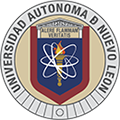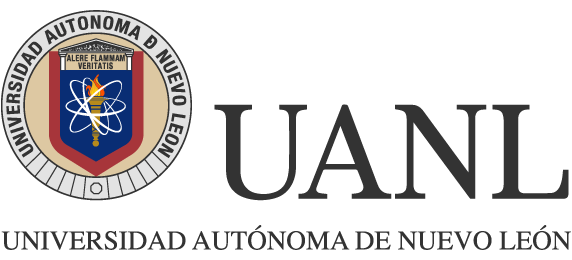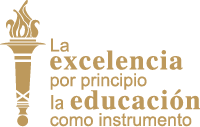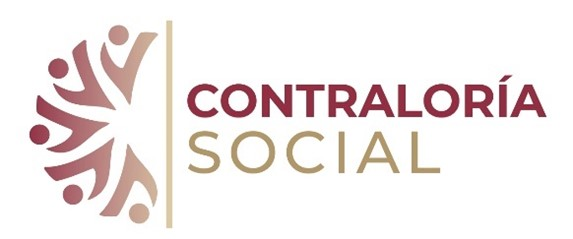Share:
Bachelor of Physical Therapy and Sports Rehabilitation
School of Physical Education
Admission profile
To qualify for a Bachelor’s Degree in Physical Therapy and Sports Rehabilitation, candidates must demonstrate the following characteristics:
i. Measurable Attributes
- Habilidad en el área de pensamiento matemático.
- Proficiency in mathematical reasoning.
- Strong analytical skills.
- Advanced reading comprehension and language organization abilities.
- Exceptional written communication skills.
- Fundamental understanding of Chemistry, Biology, and English language.
- Ability to discern and utilize diverse scientific information to enhance professional practice.
- Self-awareness and problem-solving orientation aligned with personal objectives.
- Appreciation and interpretation of artistic expressions across various genres.
- Commitment to maintaining a healthy lifestyle through informed choices and practices.
ii. Preferred Attributes
- Graduation from a technical high school relevant to the field of study.
- Enthusiasm for participating in sports activities.
- Strong interpersonal and communication skills.
- Intellectual curiosity regarding the historical and universal progression of physical therapy and sports.
- Maintains a level of physical fitness suitable for the demands of the educational program.
- Demonstrates an entrepreneurial spirit with the ability to inspire, lead, and maintain high energy levels.
- Possesses a clear and practical worldview, enjoying outdoor pursuits that require motor skills, dynamism, and leadership involvement.
- Exhibits interest in social issues and a desire to assist others through interactive humanitarian endeavors.
Admission requirements
Academic
- Have successfully graduated from high school or obtained an equivalent qualification.
Legal
- Requirements outlined in the current University regulations and procedures; or any additional criteria as deemed relevant.
Testing
- Prospective students are required to complete the entrance exam as designated by UANL.
Program-specific
- Participate in the propaedeutic course.
- Provide evidence of proficiency in a foreign language through a diagnostic test.
- Undergo physical, health, vocational, and psychological assessments
Graduation profile
Main Purpose:
To train graduates in Physical Therapy and Sports Rehabilitation to effectively prevent, assess, and treat physical-sports injuries. They will design tailored recovery programs aimed at seamlessly reintegrating individuals into their physical or sports activities at pre-injury levels. Additionally, they will adeptly manage both material and human resources to promote healthy and safe lifestyles. Utilizing a variety of therapeutic and readaptation methods, they will apply their specialized knowledge, skills, and attitudes in health, physical training, and sports performance across diverse populations, collaborating seamlessly with other health science and physical activity professionals. Guided by strong ethical and socio-community values, these professionals will engage in a spectrum of roles, spanning from physical-athletic and technical-tactical to managerial, nutritional, psychosocial support, and research domains. Their unwavering dedication will contribute significantly to enhancing the physical and sports health of society.
General skills
Instrumental skills
- Employing autonomous learning strategies across various domains to facilitate informed decision-making in personal, academic, and professional realms.
- Utilizing a range of logical, formal, mathematical, iconic, verbal, and non-verbal languages appropriate to their developmental stage, enabling comprehensive understanding, interpretation, and expression of ideas, emotions, theories, and perspectives with inclusivity.
- Proficiently navigating Information, Communication, Knowledge, and Digital Learning Technologies (TICCAD) within academic, personal, and professional settings, employing advanced techniques to foster constructive and collaborative societal engagement.
- Demonstrating mastery of their native language both orally and in writing, adhering to standards of correctness, relevance, timeliness, and ethics. They adeptly adapt their message to suit diverse situations or contexts, facilitating effective transmission of ideas and scientific discoveries.
- Employ logical, critical, creative, and proactive thinking to analyze both natural and social phenomena. This enables them to make informed decisions within their sphere of influence, upholding social responsibility.
- Demonstrate proficiency in a second language, preferably English, communicating clearly and accurately across everyday, academic, professional, and scientific contexts.
- Foster inter-, multi-, and transdisciplinary approaches in both academic and professional endeavors. This involves developing proposals aligned with global best practices to foster and solidify collaborative work.
- Utilize a blend of traditional and cutting-edge research methods and techniques. These are essential for advancing their academic pursuits, professional endeavors, and knowledge generation.
Personal and social interaction skills
- Embrace an attitude of dedication and respect towards the diverse social and cultural practices that uphold the principle of integration within local, national, and international contexts. This fosters environments conducive to peaceful coexistence.
- Engage actively in addressing the contemporary challenges faced by society, both locally and globally, with a critical mindset and a commitment to humanitarian, academic, and professional principles. Their aim is to contribute to the enhancement of general welfare and sustainable development.
- Uphold the values advocated by UANL, including truth, equity, honesty, freedom, solidarity, respect for life and others, peace, respect for nature, integrity, ethical conduct, and justice. They are expected to embody these values in both personal and professional spheres, thus playing a role in the construction of a sustainable society
.
Integrative competencies
- Develop innovative solutions grounded in a comprehensive understanding of reality to address the interconnected challenges of the global environment effectively.
- Demonstrate leadership dedicated to addressing both social and professional needs, driving meaningful social change.
- Effectively resolve personal and social conflicts by employing specific techniques relevant to their academic field and profession, ensuring sound decision-making.
- Cultivate adaptability necessary to navigate the uncertain professional and social landscapes of today, ultimately contributing to the creation of improved living conditions
Specific skills
- Assess the symptoms, injuries, and functional status of individuals within the framework of physical therapy and sports rehabilitation, following medical prescriptions. This evaluation serves as the basis for establishing tailored intervention programs that address their specific physical or sporting requirements.
- Develop physical therapy and sports rehabilitation programs that intervene across various phases of post-injury recovery, aiming for swift and efficient progress toward restoring individuals to their previous level of performance. The objective is to facilitate their reintegration into daily physical or sports activities as quickly as possible.
- Identifying therapeutic modalities and exercises suitable for the physical restoration of individuals, utilizing evidence-based approaches and principles of biomechanics, physiology, psychology, and ethics within the field of physiotherapy and rehabilitation. This occurs within clinics or sports facilities to ensure a holistic recovery of the patient’s physical or sports functionality.
- Overseeing projects aimed at promoting a safe and active lifestyle by evaluating risks associated with physical activity, training, and competition. The objective is to minimize the occurrence and recurrence of injuries among individuals while advocating for healthy lifestyles.
Labor market
| Field | Jobs |
Public and/or private organizations:
|
Injury prevention and acute intervention strategies
1. Assess injury risks within the context of a specific sport or physical activity, considering factors such as biomechanics, training intensity, and environmental conditions. 2. Educate and train athletes and other relevant professionals on effective strategies to mitigate the occurrence and recurrence of injuries, emphasizing proper technique, conditioning, and injury prevention protocols. 3. Conduct comprehensive assessments to identify areas for improvement that could enhance an athlete’s performance within their sport or activity context, encompassing physiological, biomechanical, and psychological aspects. 4. Provide guidance and recommendations regarding the risks associated with specific environments and equipment utilized in training or competition settings, promoting safety and injury prevention. 5. Evaluate an athlete’s physical readiness to perform in their sport or physical activity, considering various factors such as physiological fitness, biomechanical efficiency, and psychological readiness. 6. Respond promptly and effectively to acute injuries or illnesses occurring during training or competition, providing immediate medical care and stabilization as needed. 7. Collaborate with multidisciplinary team members to assign responsibilities for injury or illness management, ensuring coordinated care and support for athletes. 8. Assess signs and symptoms of acute injury or illness, determining their severity. 9. Utilize appropriate assessment techniques, including observation, physical examination, and screening tools, to evaluate athletes’ injury status and overall health. 10. Administer basic life support measures, including CPR and immobilization techniques, to stabilize injured athletes and prevent further harm during transportation or transfer to medical facilities. |
| Physical Therapy and Sports Rehabilitation
1. Utilize clinical reasoning and therapeutic skills to evaluate and diagnose sports-related injuries, considering factors such as mechanism of injury, physical examination findings, and diagnostic tests. 2. Evaluate evidence-based interventions for sports-related injuries, staying informed of the latest research and best practices in the field of sports medicine and rehabilitation. 3. Design sport-specific rehabilitation programs tailored to the individual needs and goals of athletes, incorporating elements such as injury prevention, functional training, and sport-specific exercises. 4. Implement appropriate assessments to evaluate an athlete’s performance capacity and movement efficiency, utilizing techniques such as functional movement screening, biomechanical analysis, and performance testing. 5. Design individualized rehabilitation programs based on the assessment findings, addressing specific deficits and impairments while considering the athlete’s sport-specific demands and timeline for return to play. 6. Develop comprehensive reports documenting the results of interventions and any modifications made to the rehabilitation plan, ensuring clear communication and collaboration with other members of the healthcare team and stakeholders involved in the athlete’s care 7. Provide guidance on the progression and timing of return to sports and exercise activities. 8. Develop guidelines and manuals for assessing risks associated with the independent use of equipment or strategies, promoting safe and informed practices among athletes. 9. Offer psychological support to athletes during the readaptation process, addressing emotional challenges and promoting mental resilience. 10. Coordinate the allocation of time, resources, and personnel within physical therapy centers, optimizing efficiency and productivity. 11. Organize, monitor, and strategically plan physical therapy services to meet the needs of athletes and clients, ensuring high-quality care and outcomes. 12. Implement continuous improvement processes in measurement techniques, therapeutic interventions, optimal training practices, and injury risk epidemiology to enhance the effectiveness of sports rehabilitation programs. 13. Manage and support athlete drug testing programs, ensuring compliance with regulations and ethical standards in sports. |
Graduation requirements
Academic
- Successfully complete the 198 total credits outlined in the study plan.
- Fulfill the mandatory Social Service requirement
Legal
- Adhere to the regulations and procedures stipulated by the University, as applicable.
Program-specific
-Successfully pass the bachelor's degree graduation exam.
-Provide evidence of participation in activities for comprehensive training.
-Demonstrate proficiency or improvement in a foreign language competency
Location
Fecha de aprobación del H. Consejo Universitario
24 de marzo de 2022.Posted by: Dirección del Sistema de Estudios de Licenciatura




